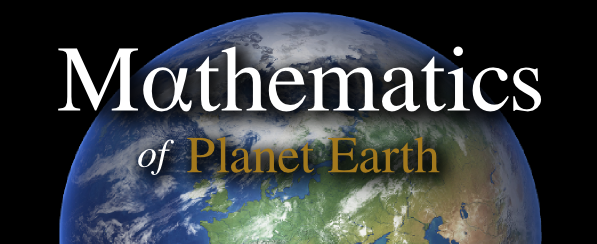The Centre for Doctoral Training in Mathematics of Planet Earth is partnering with the National Physics Laboratory (NPL) to offer a four year studenship in Bayesian inference with application to air quality monitoring, starting in September 2017.
We welcome applications from students with a very strong track record and a degree in Mathematics, Statistics, Engineering, Physics or related discipline. The project will involve the development of Statistical Methodology and a significant amount of Computing, so experience in scientific computation is highly desirable. The project will also involve theoretical investigations so good grasp of concepts from Analysis and Probability will be very useful.
The student will be part of the MPECDT programme, which is joint between the Universities of Reading and Imperial College London. This programme comprises an MRes in the first year followed by a PhD for three years. The student will be based primarily at Imperial College London but will also spend some time at the National Physical Laboratory (located in Teddington, South West London), as well as participating in MPECDT events at the University of Reading.
How to apply:
Applications should be lodged via the MPECDT applications procedure, indicating that the candidate wishes to be considered for the NPL joint project. The deadline for applications is 31 January 2017, and interviews will be held on 22 February.
Project Description:
Background:
Air pollution in cities is a major health problem. Regulations require that air quality is monitored and large scale sensor networks are being used to provide point measurements of pollutants. New data analytics is required to convert these point measurements to aggregate measures of air quality that enable cities to monitor air quality and assess the effectiveness of interventions.
Project:
This project will develop methodology for performing improved statistical inference on environmental modelling applications. These applications require the use of a large number of sensors that collect data frequently and are distributed over a large region in space. This motivates the use of space time varying stochastic dynamical models to model environmental quantities such as air quality, pollution level and temperature. Naturally one is interested in fitting these models to real data collected in practice. In addition, one is also interested on improving on the statistical inference using appropriate temporally-resolved observations, optimal spatial sensor placement or automatic calibration of sensor biases. From a statistical perspective, these problems can be formulated using a Bayesian framework that combine posterior inference with optimal design. Performing Bayesian inference or optimal design for these models is analytically intractable so one needs to rely on simulation-based numerical methods. We will be looking at computational methods that are principled but intensive and, given the additional challenge related to the high dimensionality of the models and data, exploit the structure of the underlying statistical model at hand to design effective algorithms that can be used in practice. This means that popular methods such as Sequential Monte Carlo (SMC) or Markov Chain Monte Carlo (MCMC) need to be carefully extended to accommodate the particular models in the application.
For further information on the project please contact Professor Alistair Forbes (alistair.forbes@npl.co.uk) and Dr Nikolas Kantas (n.kantas@imperial.ac.uk).






